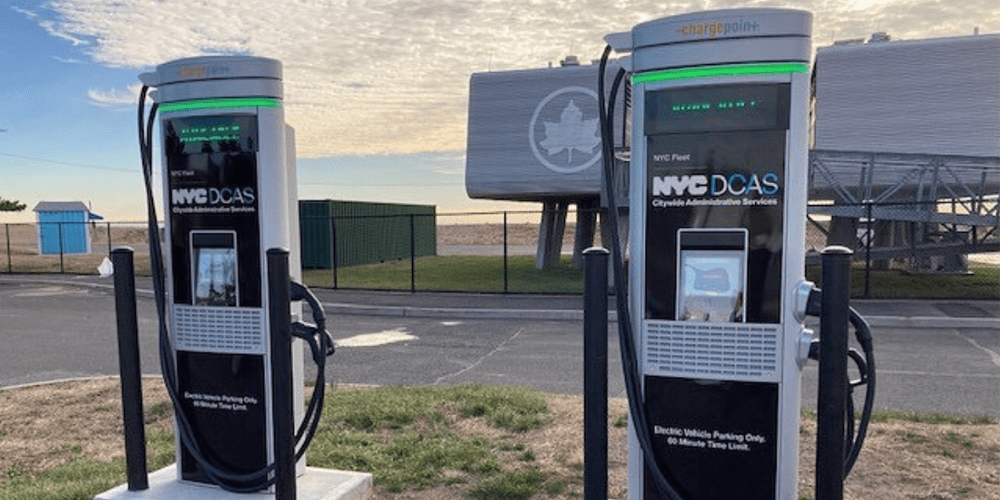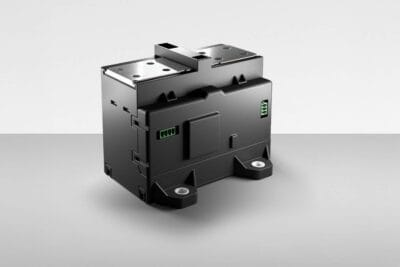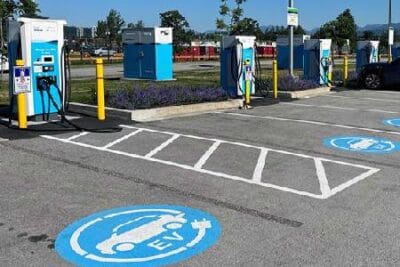USA: National EV charging infrastructure program is a Go (NEVI)
The plan to build a national network of 500,000 charging stations for electric vehicles across the US is taking shape. The US Department of Transportation and Energy announced it would provide nearly $5 billion in funding over five years to help states build said network, particularly along highways.
++ This article has been updated. Kindly continue reading below. ++
The US Departments of Transportation and Energy run the new scheme as the ‘National Electric Vehicle Infrastructure (NEVI) Program, which builds on the already designated Alternative Fuel Corridors, i.e. envisions EV charging stations to be installed along the Interstate Highway System. The Department claims that “nearly every state” had designated said AFCs over the past six years. “These corridors will be the spine of the new national EV charging network,” the Department writes.
In this fiscal year alone, states can access $615 million after submitting a so-called EV Infrastructure Deployment Plan, the new Joint Office of Energy and Transportation. The plan must describe how the state intends to use its share of NEVI funds, which vary by state. For example, with 60 million dollars, Texas is entitled to just under a tenth of the total amount in 2022, followed by California with 56 million dollars. Smaller and/or more rural states have been allocated smaller sums. Idaho, for example, can apply for about $4.4 million, Nevada $5.6 million.
The new Joint Office of Energy and Transportation is to play “a key role” in implementing the NEVI Formula Program. Tasks include direct technical assistance and support to help states develop their plans before they are reviewed and approved by the Federal Highway Administration, which administers the funding.
“A century ago, America ushered in the modern automotive era; now America must lead the electric vehicle revolution,” said US Transportation Secretary Pete Buttigieg. “The President’s Bipartisan Infrastructure Law will help us win the EV race by working with states, labour, and the private sector to deploy a historic nationwide charging network that will make EV charging accessible for more Americans.”
A second grant program to build charging stations across the country, including rural and underserved communities, is expected to follow later this year.
“We are modernizing America’s national highway system for drivers in cities large and small, towns and rural communities, to take advantage of the benefits of driving electric,” said US Secretary of Energy Jennifer M. Granholm.
The announcement follows the plans laid out in the US government’s infrastructure package, approved last November, providing a total of $7.5 billion for expanding nationwide charging infrastructure.
The Joint Office of Energy and Transportation also launched a new website, where officials can find links to technical assistance, data and tools for states and careers.
Update 10 June 2022
The US Transportation Department (USDOT) proposed minimum standards and requirements for EV charging projects funded under the $5 billion government program. The rules would require government-funded EV charging stations to use DC fast chargers and have at least four ports capable of simultaneously charging. Each must be at or above 150 kW. It would also bar charging stations from requiring a membership to use them. The proposed rule is expected to publish in the Federal Register next week.
The rules would ensure EV stations built nationwide can communicate and operate on the same software platforms. States must run federally funded charging ports for at least five years. “Everybody should be able to find a working charging station when and where they need it – without worrying about paying more or getting worse service because of where they live,” said Transportation Secretary Pete Buttigieg.
Update 04 August 2022
All 50 states of America, the District of Columbia and Puerto Rico have submitted EV infrastructure deployment plans as required under the National Electric Vehicle Infrastructure (NEVI) scheme. These plans were required to unlock the first round of the five billion dollars in funding available over five years.
The US Government stressed that the on-time submission of every single plan demonstrated the widespread commitment from states to build out EV charging infrastructure.
“Today’s milestone in our plans to build an interconnected national EV charging network is proof that America is prepared to act on President Biden’s call to modernize the national highway system and help Americans drive electric,” said US Secretary of Energy Jennifer M. Granholm.
Each state was required to submit an EV Infrastructure Deployment Plan to the Joint Office of Energy and Transportation that describes how it intends to use its share of NEVI funds consistent with the Federal Highway Administration (FHWA) guidance outlined in the previous update above.
The Joint Office and FHWA will review the strategies and continue to work with states to approve the plans by 30 September. Once each plan is approved, state departments of transportation will be able to deploy EV charging infrastructure accordingly.
Update 15 September 2022
After all the US states recently submitted their plans for the development of charging infrastructure, the Biden-Harris Administration announced the approval of 35 of these plans. This releases the first $900 million in funding for developing the national network of 500,000 charging stations for electric vehicles, first along the country’s highways.
The now-approved NEVI funding in 2022 and 2023 will help build charging stations on approximately 53,000 miles (85,300 kilometres) of the motorway network, notes the FHWA, the highway agency responsible for the project.
“Today, with funding in President Biden’s Bipartisan Infrastructure Law, we are taking an important step to build a nationwide electric vehicle charging network where finding a charge is as easy as locating a gas station,” said US Transportation Secretary Pete Buttigieg. “With the first set of approvals we are announcing today, 35 states across the country – with Democratic and Republican governors – will be moving forward to use these funds to install EV chargers at regular, reliable intervals along their highways.”
The approval process seems to be well in time. The Government’s schedule targets approving all NEVI plans by 30 September and has managed well over half. Among the outstanding approvals are the states of Hawaii and Alaska, New York, Texas, and Idaho.
Update 28 September 2022:
Less than two weeks after the first 35 plans were approved, the US government has now approved all plans from all 50 states, the District of Columbia and Puerto Rico to build electric vehicle charging infrastructure. With this approval, all states now have access to a total of more than 1.5 billion US dollars in funding to cover the construction of charging stations on approximately 75,000 highway miles across the country. The government has published the exact list with the funding amounts for the individual US states here.
The US government’s $7.5 billion expansion of charging infrastructure will be overseen by Gabe Klein, who was recently appointed head of the Joint Office of Energy and Transportation. “I will seize the opportunity to steward a critical shift in our transportation economy from fossil fuels to clean, electric energy systems, as there has never been a more important mission in our recent history than solving the climate crisis,” Klein says.
highways.dot.gov, reuters.com, transportation.gov, fhwa.dot.gov (updates June ’22), highways.dot.gov (update Aug ’22), fhwa.dot.gov (links to all plans and lice approvals), highways.gov (update Sept ’22),
Update Sept ’22: transportation.gov (approval announcement), fhwa.dot.gov (deployment plans), fhwa.dot.gov (5-year nevi funding by state), energy.gov (appointment Klein)





1 Comment